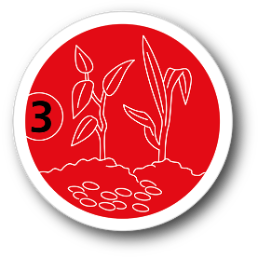The general aim of this strategic research field is to provide the Swiss agricultural sector with varieties and clones of cultivated plants which are healthy, adapted to Swiss conditions, make efficient use of natural resources, can cope with abiotic stress, and are resistant to or tolerant of pathogens and pests. These plants must provide high-quality harvests that meet the demands of the sector and market, whether they are intented for human or animal nutrition.
To achieve these aims, we need to:
- Develop new varieties of cultivated plants and grapes (plant breeding) that are pest-resistant, and which allow us to conserve resources, limit the use of inputs, and supply crops that meet the demands of the markets
- Scientifically characterise new varieties of cultivated plants and grapevine clones (varietal study) in order to capitalise quickly on genetic advances and support ecological intensification as well as the resilience of the production systems
- Make healthy, certified seeds and vegetative propagation material available to the sector (certification) in order to support ecological intensification
- Meet requests for conservation and characterisation of genetic resources
- Identify new plants that are seldom or not yet cultivated in Switzerland and which offer worthwhile prospects in terms of crop and diversification of nutrition
- Further develop ‘classic’ breeding methods such as genomic selection, speed-breeding, high-throughput phenotyping, etc. and implement these in the breeding programmes. Evaluation of the opportunities and risks of the new breeding methods (transgenesis and cisgenesis, RNAi, genome editing, CRISPR/Cas, etc.).
- Evaluate genetically modified (GM) plants in the field.






